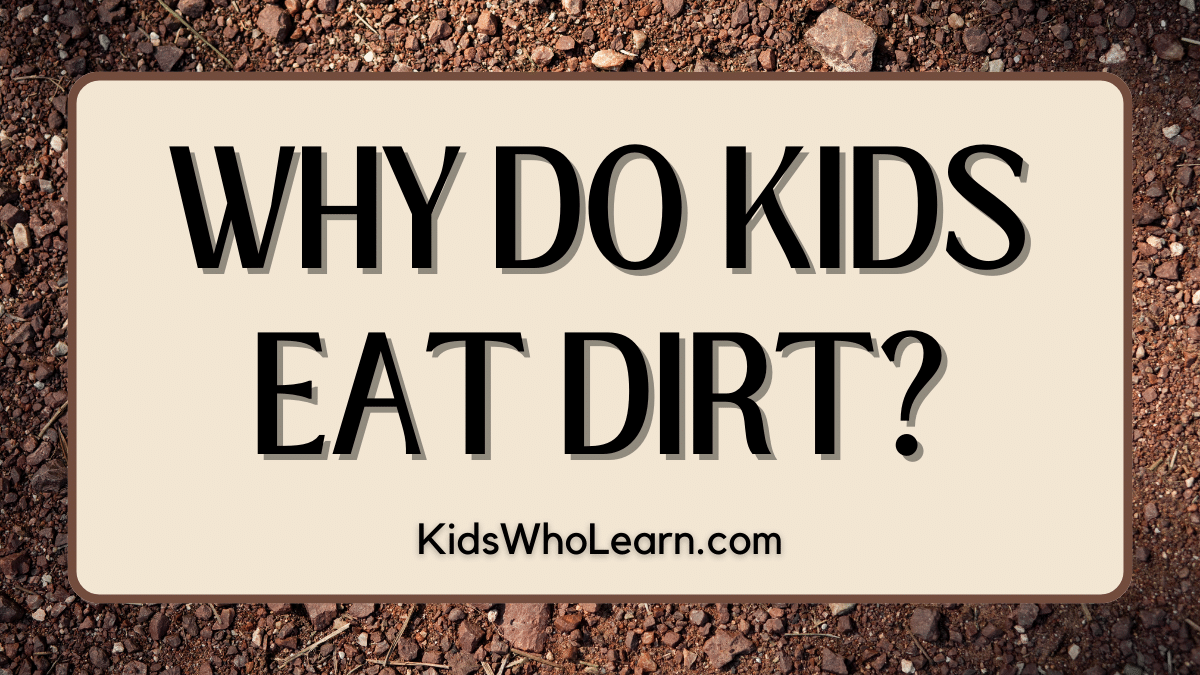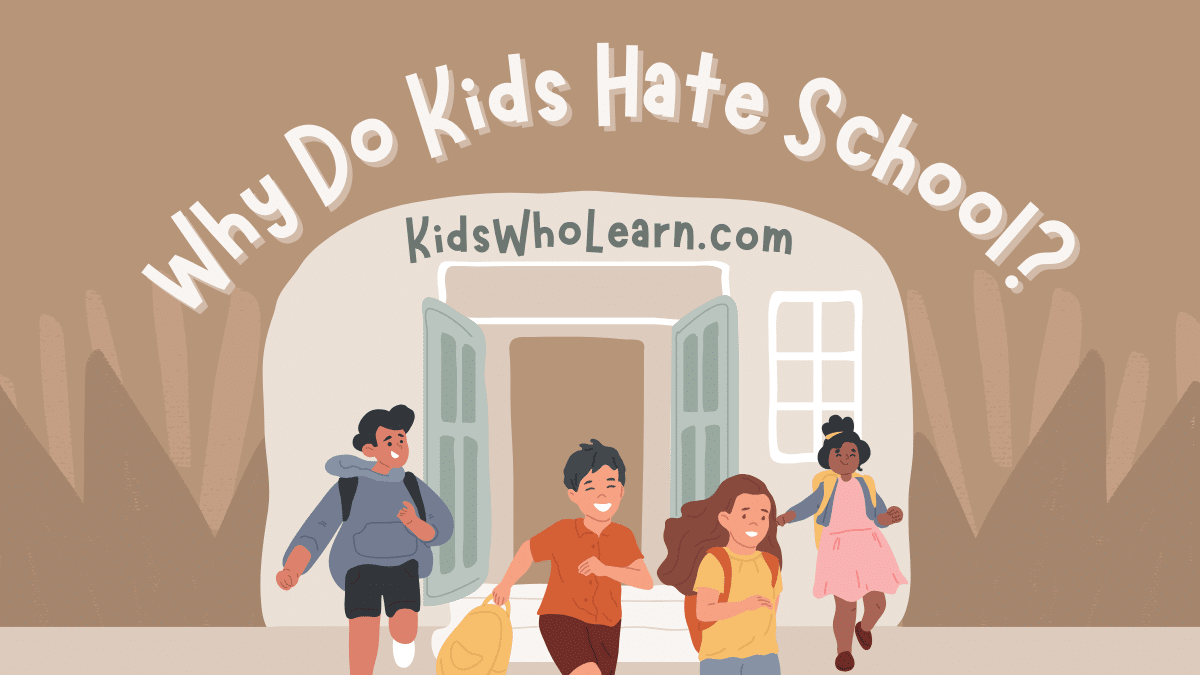Do you remember the days when you were a curious child, exploring the world around you and sometimes putting things in your mouth that you shouldn’t have? Eating dirt may seem like a strange and even repulsive behavior to adults, but it’s not uncommon for young children to do so. In fact, it’s estimated that up to 16% of children between the ages of 1 and 6 have eaten dirt or other non-food items at some point.
So, why do kids eat dirt? There are several possible reasons, ranging from nutritional deficiencies to psychological factors. Some children may simply be curious and exploring their environment, while others may have an underlying condition that causes them to crave non-food items. Understanding the reasons behind this behavior can help parents and caregivers take steps to prevent it and ensure that children stay healthy and safe.
Key Takeaways
- Eating dirt is a common behavior among young children, with up to 16% of kids between the ages of 1 and 6 having tried it at some point.
- Possible reasons for dirt eating include curiosity, nutritional deficiencies, and psychological factors.
- By understanding the causes of dirt eating and taking steps to prevent it, parents and caregivers can help ensure that children stay healthy and safe.
Understanding the Pica Disorder
Definition of Pica
Pica is a disorder characterized by the persistent eating of non-nutritive substances, such as dirt, chalk, paper, and more. This disorder is most commonly diagnosed in children between the ages of 2 and 3, although it can occur in people of all ages.
Pica is considered a type of eating disorder and can be associated with other mental health conditions, such as obsessive-compulsive disorder (OCD), autism spectrum disorder, and intellectual disabilities.
Why It Affects Children
Children are more likely to develop pica because they are still learning about the world around them and may explore their environment through taste and touch. Additionally, children may be more likely to engage in pica if they have nutritional deficiencies or are experiencing stress or anxiety.
It is important to note that pica can be dangerous, as ingesting non-food items can lead to serious health complications, such as poisoning, intestinal blockages, and infections.
If you suspect that your child may be engaging in pica, it is important to speak with a healthcare professional. They can help determine the underlying cause of the behavior and provide appropriate treatment options.
Remember, pica is a disorder that can be treated with the right care. With proper intervention, children with pica can go on to live healthy and fulfilling lives.
The Role of Curiosity in Children
Children are naturally curious beings, and their desire to explore the world around them often leads to them putting things in their mouths, including dirt. This behavior can be concerning for parents, but it is important to understand the role of curiosity in children’s development.
Exploration Through Taste
One reason why kids may eat dirt is because they are exploring the world around them through taste. Babies and young children often put objects in their mouths to learn about their textures and tastes. This behavior is a normal part of development and helps children to understand the world around them.
The Sensory Stage
Another reason why children may eat dirt is that they are in the sensory stage of development. During this stage, children are learning about their senses and how they work. They may be exploring the texture and taste of dirt as part of this learning process.
While eating dirt is generally not harmful, it is important to ensure that your child is not consuming large amounts of it or dirt that may be contaminated with harmful substances. Encourage your child to explore their world in a safe and healthy way, and provide them with plenty of opportunities to learn and grow.
Nutritional Deficiencies and Dirt Eating
Kids may eat dirt due to nutritional deficiencies. Here are two potential deficiencies that may lead to dirt eating:
Iron Deficiency
Iron is a vital nutrient that helps the body produce hemoglobin, which carries oxygen to the cells. Without enough iron, the body can’t produce enough hemoglobin, leading to anemia. Iron deficiency anemia can cause fatigue, weakness, and shortness of breath.
Dirt contains iron, and some kids may eat dirt to try to supplement their iron levels. However, eating dirt is not a safe or effective way to get iron. Dirt can contain harmful substances like lead, bacteria, and parasites that can make your child sick.
If you suspect your child has an iron deficiency, talk to your pediatrician about safe and effective ways to increase their iron intake. They may recommend iron-rich foods like red meat, beans, and leafy greens or iron supplements.
Zinc Deficiency
Zinc is another essential nutrient that plays a crucial role in the body’s immune system and wound healing. Zinc deficiency can cause a weakened immune system, increased risk of infections, and delayed wound healing.
Like iron, dirt contains zinc, and some kids may eat dirt to try to supplement their zinc levels. However, eating dirt is not a safe or effective way to get zinc. Dirt can contain harmful substances like lead, bacteria, and parasites that can make your child sick.
If you suspect your child has a zinc deficiency, talk to your pediatrician about safe and effective ways to increase their zinc intake. They may recommend zinc-rich foods like oysters, beef, and pumpkin seeds or zinc supplements.
Remember, if you suspect your child has a nutritional deficiency, it’s essential to talk to your pediatrician. They can help you identify the deficiency and recommend safe and effective ways to address it.
Psychological Factors
When it comes to understanding why kids eat dirt, it’s important to consider the psychological factors that may be at play. Here are a few possible explanations:
Stress and Anxiety
Stress and anxiety can manifest in a variety of ways, including in a child’s eating habits. Some children may turn to eating non-food items like dirt as a way to cope with their emotions. This behavior may provide a sense of control or comfort in an otherwise stressful or uncertain situation.
If you suspect that your child may be eating dirt due to stress or anxiety, it’s important to address the underlying issue. Consider talking to your child about their feelings and providing them with healthy coping mechanisms, such as deep breathing exercises or physical activity.
Attention Seeking
In some cases, children may eat dirt as a way to get attention from their parents or caregivers. This behavior may be a sign that the child is feeling neglected or overlooked, and is seeking validation and affection.
If you suspect that your child may be eating dirt as a way to get attention, it’s important to provide them with positive reinforcement and attention in other ways. This may include spending quality time with your child, praising them for positive behavior, and showing interest in their hobbies and interests.
Remember, every child is unique and may have their own reasons for eating dirt. If you have concerns about your child’s behavior, it’s always a good idea to speak with a healthcare professional or mental health expert for guidance and support.
Preventing Dirt Eating in Kids
Dirt eating is a common behavior in young children, but it can be harmful to their health. Here are some tips to prevent your child from eating dirt.
Supervision and Safety
It is important to supervise your child when they are playing outside to ensure that they do not eat dirt or other harmful substances. Keep an eye on them and make sure they are playing in safe areas. If you have a backyard, make sure it is free of any harmful substances, such as pesticides or chemicals.
Providing Balanced Nutrition
Children who are malnourished may be more likely to eat dirt. Make sure your child is getting a balanced diet with plenty of fruits, vegetables, and whole grains. If you are concerned about your child’s nutrition, talk to your pediatrician.
Professional Help
If your child continues to eat dirt despite your efforts to prevent it, it may be a sign of an underlying issue. Talk to your pediatrician or a mental health professional to rule out any medical or psychological conditions.
In summary, preventing dirt eating in kids involves supervising them when they play outside, providing them with a balanced diet, and seeking professional help if necessary. By taking these steps, you can help keep your child safe and healthy.
Frequently Asked Questions
Can eating dirt be harmful for children?
Yes, eating dirt can be harmful for children as it may contain harmful bacteria, parasites, or chemicals. These can cause infections, poisoning, or other health problems.
What are the reasons behind children eating non-food items?
There are several reasons why children may eat non-food items, including pica, sensory issues, boredom, curiosity, or nutritional deficiencies.
How can parents prevent their children from eating non-food items?
Parents can prevent their children from eating non-food items by providing a safe and stimulating environment, supervising their children, teaching them about the dangers of eating non-food items, and addressing any underlying issues such as pica or nutritional deficiencies.
What are the signs and symptoms of pica in toddlers?
The signs and symptoms of pica in toddlers include eating non-food items such as dirt, clay, paint chips, or paper, persistent cravings for non-food items, stomach pain, vomiting, constipation, diarrhea, and anemia.
Is pica a sign of an underlying medical condition?
Yes, pica can be a sign of an underlying medical condition such as iron-deficiency anemia, lead poisoning, or developmental disorders.
Are there any home remedies to help children stop eating non-food items?
There are no proven home remedies to help children stop eating non-food items. However, parents can try to address any underlying issues, provide nutritious meals, and seek medical advice if necessary.







